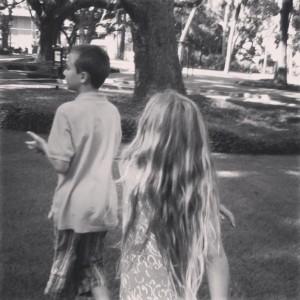“Darkness cannot drive out darkness: only light can do that. Hate cannot drive out hate: only love can do that.” MLK Jr.
 I didn’t post earlier in the week because I wasn’t quite ready to write about peace. After the marathon bombing and the ensuing manhunt, I felt like I couldn’t “authentically” comment on peace since I was struggling to find it within myself.
I didn’t post earlier in the week because I wasn’t quite ready to write about peace. After the marathon bombing and the ensuing manhunt, I felt like I couldn’t “authentically” comment on peace since I was struggling to find it within myself.
I didn’t feel “at peace.”
I felt overcome — sorrowful and tormented that the tragedy resonated so deeply. Similar to my feelings after the Sandy Hook shootings, I felt stuck in a state of empathy that truly ached.
As a parent, I am experiencing the joy and sacredness of my children ‘daily’ as they discover who they are – fresh with the light and energy of innocence. At the same time, I am discovering who they have the potential to be. Where can peace be found in the face of that kind of loss?
Searching for explanations only raises more questions: disconnected young men, misguided ideologies about freedom, faith, and religion. As a society, where do we go from here?
Where is peace in all of this, and what can we learn when we feel as if God is absent?
However, in the same moments I have ached over Newtown and Boston, I have also rejoiced that cancer no longer invades the bodies and lives of several dear friends, and the beauty, celebration, and complexity of life continues.
The paradox is that God is present in all of these moments, and peace and patience come to fruition with that understanding. Irish poet John O’Donohue says that somewhere within us, a ‘dignity’ presides that ‘trusts’ the form a day takes, continuously “transforming our broken fragments into an eternal continuity that keeps us.”
Trusting the ‘form’ that each day takes (the good and the bad) requires the understanding that within each moment, we can choose to move forward in patience (with love or generosity) or in haste (with indifference or hostility).
The act of patience reminds us that we are not in control, and staying ‘in the struggle’ allows us the opportunity to improve our world and ourselves, rather than accepting the easy answers of apathetic approaches or adopting attitudes of intolerance.
In the New Testament, Paul reminds us that human beings cannot help but see things imperfectly, like puzzling reflections. If we allow ourselves to trust the form each day takes, and choose to accept that grace essentially explains that life happens within the arms of God (as 16th century poet St. John wrote), then we get a glimpse of heaven on earth.
Being still and patient in those moments of struggle reveals the notion that “when we are . . . aware of the inadequacy of our table, it is to that, uninvited, the guest comes” (Thomas). Through patience, we are acquiring endurance of the spirit, so that we can trust the form each day takes.